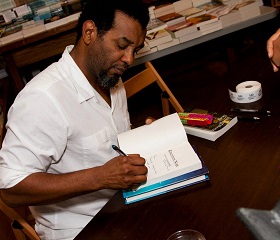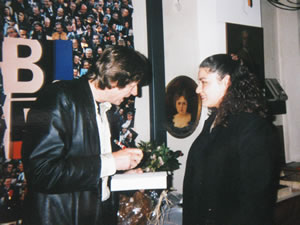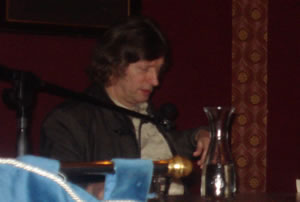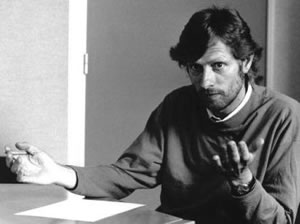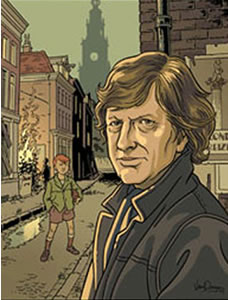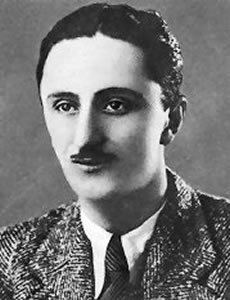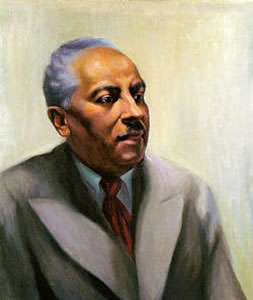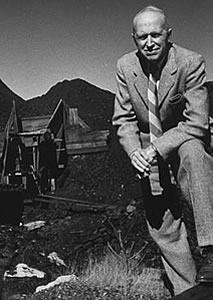De Duitse schrijver en journalist Sebastian David Fitzek werd geboren op 13 oktober 1971 in Berlijn. Zie ook alle tags voor Sebastian Fitzek op dit blog.
Uit: Die Therapie
“Das Hinweisschild an der weißen, lederverkleideten Tür zum Behandlungsraum des Allergologen verschwamm vor seinen Augen. Dr. Grohlke war ein Freund der Familie und Arzt Nummer zweiundzwanzig. Viktor Larenz hatte eine Strich-liste angelegt. Die einundzwanzig Ärzte zuvor hatten nichts finden können. Gar nichts. Der Erst; ein Notarzt, war am zweiten Weihnachtsfeiertag auf das Familienanwesen nach Schwanenwerder gekommen. Auf den Tag genau vor elf Monaten. Erst glaubten sie alle, Josephine hätte sich nur an dem Festtags-Fondue den Magen verdorben. Sie hatte sich in der Nacht mehrfach übergeben und dann Durchfall bekommen. Seine Frau Isabell verständigte den privatärztlichen Notdienst, und Viktor trug Josy in ihrem feinen Batistnachthemd nach unten ins Wohnzimmer. Noch heute spürte er ihre dünnen Ärmchen, wenn er daran dachte. Das eine Hilfe suchend um seinen Hals gelegt, mit dem anderen ihr Lieblingsstofftier, die blaue Katze Nepomuk, fest umklammernd. Unter den strengen Blicken der anwesenden Verwandten hatte der Arzt den schmalen Brustkorb des Mädchens abgehört, ihr eine Elektrolyt-Infusion gegeben und ein homöopathisches Mittel verschrieben. »Ein kleiner Magen-Darm-Infekt. So was grassiert gerade in der Stadt. Aber keine Sorge! Alles wird gut«, waren die Worte gewesen, mit denen sich der Notarzt verabschiedete. Alles wird gut. Der Mann hatte gelogen.
Viktor stand direkt vor Dr. Grohlkes Behandlungszimmer. Als er die schwere Tür öffnen wollte, konnte er noch nicht einmal die Klinke runterdrücken. Erst dachte er, die Anspannung der letzten Stunden hätte ihm selbst dafür die Kraft geraubt. Dann wurde ihm klar, dass die Tür verschlossen war. Jemand hatte von innen einen Riegel vorgelegt. Was geht hier vor? Er drehte sich abrupt um und hatte das Gefühl, seine Umgebung wie in einem Daumenkino zu betrachten. Alles, was er sah, erreichte zeitversetzt und in ruckartigen Bildern sein Gehirn: die irischen Landschaftsaufnahmen an den Praxiswänden, der verstaubte Gummibaum in der Fensternische, die Dame mit der Schuppenflechte auf dem Stuhl. Larenz rüttelte ein letztes Mal an der Tür und schleppte sich dann durchs Wartezimmer auf den Gang hinaus.”

Sebastian Fitzek (Berlijn, 13 oktober 1971)
De Albanese dichter Migjeni (eigen. Millosh Gjergj Nikolla) werd geboren op 13 oktober 1911 in Shkodra. Zie ook alle tags voor Migjeni op dit blog.
Poem Of Poverty (Fragment)
Poverty labours and toils by day and night,
Chest and forehead drenched in sweat,
Up to the knees in mud and slime,
And still the empty guts writhe in hunger.
Starvation wages! For such a daily ordeal,
A mere three or four leks and an ‘On your way.’
Poverty sometimes paints its face,
Swollen lips scarlet, hollow cheeks rouged,
And body a chattel in a filthy trade.
For service in bed for which it is paid
With a few lousy francs,
Stained sheets, stained face and stained conscience.
Poverty leaves a heritage as well,
Not cash in the bank or property you can sell,
But distorted bones and pains in the chest,
Perhaps leaves the memory of a bygone day
When the roof of the house, weakened by decay,
By age and the weather collapsed and fell,
And above all the din rose a terrible cry
Cursing and imploring, as from the depths of hell,
The voice of a man crushed by a beam.
Under the heel, says the priest, of a god irate
Ends thus the life of a dissolute ingrate.
And so the memory of such misfortunes
Fills the cup of bitterness passed to generations.
Vertaald door Robert Elsie
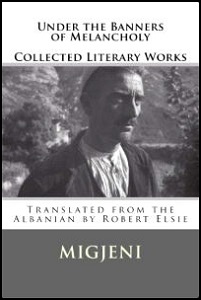
Migjeni (13 oktober 1911 – 26 augustus 1938)
Cover
De Amerikaanse dichter en schrijver Arna Wendell Bontemps werd geboren op 13 oktober 1902 in Alexandria in Louisiana. Zie ook alle tags voor Arna Wendell Bontemps op dit blog.
Uit: Arna Bontemps-Langston Hughes Letters, 1925-1967
“February 5, 1947
Dear Lang:
Billy Haygood is anxious to spend part of the coming summer at Yaddo working on the book which Doubleday, Doran and Company commissioned: a novel reflecting some aspects of his own experience. I cannot sponsor him very gracefully, since he has written a beautiful note in my behalf and it would almost look as if we were scratching each others back. However, he wondered if I would ask you to say a word in his behalf. I assured him that I would and that I thought you would be only too happy. If so, will you tell him that you have written.
I am still singing the praises of STREET SCENE. You are in clover for life. Now that you are rich, but of course not haughty, perhaps we can think a little more about the poor man’s profession of poetry. I mentioned the anthology to Buck Moon in New York, and he sprang at the idea. Of course, I did not commit us in any way, but unless Knopf comes through to our satisfaction, we can be sure that Doubleday is willing. Buck talked about a large volume, perhaps selling for $5 in the original edition and being reissued later in a more modest-priced reprint if that is desired. He is suppose4to write me further about his idea. I suggest that if he wants the item on the Doubleday list that he simply make us an offer out of the clear, unrelated to any conversations which he and I may have had.
How does it feel to be a Professor of English?
Ever,”
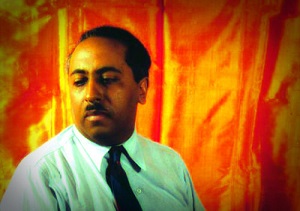
Arna Wendell Bontemps (13 oktober 1902 – 4 juni 1973)
De Amerikaanse schrijver Conrad Richter werd geboren op 13 oktober 1890 in Pine Grove, Pennsylvania. Zie ook alle tags voor Conrad Richter op dit blog.
Uit: The Light in the Forest
“I gave talking paper that I bring him,” he told the white guards. “Now he belong to you.”
It was all over then, the boy knew. He was as good as dead and lay among the other captives with his face down. He was sure that his father had stayed. He could feel his presence and smell the sweet inner bark of the red willow mixed with the dried sumach leaves of his pipe. When dusk fell, a white guard came up. The other soldiers called him Del, perhaps because he could talk Delaware, the strange name the whites gave the Lenni Lenape and their languages. True Son heard Del tell his father that all Indians must be out of the camp by nightfall. From the sounds the boy guessed his father was knocking out his pipe and putting it away. Then he knew he had risen and was standing over him.
“Now go like an Indian, True Son,” he said in a low, stern voice. “Give me no more shame.”
He left almost at once and the boy heard his footsteps in the leaves. The rustling sound grew farther and farther away. When he sat up, his father was gone. But never before or since was the place his father was going back to so clear and beautiful in the boy’s mind. He could see the great oaks and shiver-bark hickories standing over the village in the autumn dusk, the smoke rising from the double row of cabins with the street between, and the shining, white reflection of the sky in the Tuscarawas beyond. Fallen red, brown and golden leaves lay over roofs and bushes, street and forest floor. Tramping through them could be made out the friendly forms of those he knew, warriors and hunters, squaws, and the boys, dogs and girls he had played with. Through the open door of his father’s cabin shone the warm red fire with his mother and sisters over it, for this was the beginning of the Month of the First Snow, November. Near the fire heavy bark had been strewn on the ground, and on it lay his familiar bed and the old worn half-grown bearskin he pulled over himself at night. Homesickness overwhelmed him, and he sat there and wept.”
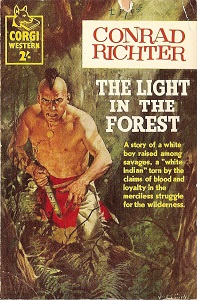
Conrad Richter (13 oktober 1890 – 30 oktober 1968)
Cover
De Britse romanschrijfster en gewezen politica Edwina Currie werd geboren in Liverpool op 13 oktober 1946.Zie ook alle tags voor Edwina Currie op dit blog.
Uit: Diaries
“For a long time it made me stop loving Ray — or maybe the contrast was just too stark? Maybe my innate dissatisfaction was surfacing anyway, and if it hadn’t been B, it might have been someone else, someone more aggressive and less concerned at breaking up a marriage? Since the spring, when I decided the liaison with B was too dangerous, I’ve made a much bigger effort at home, and I think that helps. I suspect I did a lot of snapping at everyone before, and was resentful and rude. Certainly Ray seems more relaxed and has stopped job hunting and is more affectionate and friendly. We’ve also agreed to spend (borrow) rather a lot of money to improve Tower House, which will make it more comfortable and roomy and leave me more content. But oh, as I sit here in the flat, B is here too — in spirit! — and I wish I knew he would be knocking on the door in ten minutes, I would not have tears dripping gently off my nose right now. Debbie’s smoking ended up on the front page of The Sun. Unfortunately she appears to enjoy the notoriety and was seen on television waving and giggling at the cameras. I’m really very angry with the school. Then Today came around to Tower House and photographed the swimming pool, etc. — apart from worries about security, it makes us look like plutocrats, though I’m sure our little flat in Victoria is worth more. The Today man came back to the house this morning and wanted to know if Debbie was home. I shut the door in his face. I’m cross about the fact that every speech I make is crawled over by officials, then cleared by other ministers and sent to Number 10.”
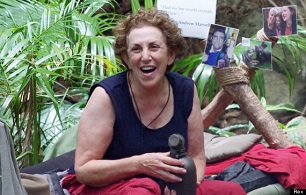
Edwina Currie (Liverpool, 13 oktober 1946)


